Are you a resident of Singapore who is looking to file your personal income tax return? Or are you planning to move to Singapore and want to understand the country’s income tax system? Whether you are a Singaporean citizen, a Permanent Resident, or a foreigner working in Singapore, it is important to have a good grasp of the country’s income tax laws.

Singapore has a progressive income tax system, which means that the more you earn, the higher your tax rate. If you are a resident of Singapore, you are required to file your personal income tax return every year. In this article, we will provide you with a comprehensive guide to Singapore’s income tax system, including eligibility criteria, taxable income components, reliefs and deductions, filing procedures, and payment and penalties.
Key Takeaways
- Understand Singapore’s income tax system, including the eligibility criteria and tax residency rules.
- Know the components of taxable income, including employment income, rental income, and investment income.
- Learn about the reliefs and deductions available to reduce your taxable income, and the penalties for non-compliance.
Understanding Singapore’s Income Tax System

If you are a resident of Singapore, you are required to pay personal income tax on your taxable income. In this section, we will explain the basics of Singapore’s income tax system, including the year of assessment, income tax rates and bands, and more.
Basics of Personal Income Tax
In Singapore, the personal income tax is a progressive tax system, which means that those with higher incomes will be taxed at a higher rate than those with lower incomes. Your taxable income is calculated by subtracting allowable expenses and deductions from your chargeable income.
Year of Assessment Explained
The year of assessment (YA) is the tax year in which your income tax is calculated and charged. YA 2023 is for income earned from 1 Jan 2022 to 31 Dec 2022. You will receive a tax bill after the end of the year of assessment, and you must file your tax return by 15 April of the following year.
Income Tax Rates and Bands
Singapore’s income tax rates are among the lowest in the world, with the highest tax rate at 22% for residents. The income tax rates and bands for YA 2023 are as follows:
| Taxable Income | Income Tax Rate |
|---|---|
| First $20,000 | 0% |
| Next $10,000 | 2% |
| Next $10,000 | 3.5% |
| Next $40,000 | 7% |
| Next $40,000 | 11.5% |
| Next $40,000 | 15% |
| Next $40,000 | 18% |
| Next $40,000 | 19% |
| Above $250,000 | 22% |
It is important to note that the above rates apply only to tax residents. Non-residents are taxed at a flat rate of 15% or the resident rates, whichever is higher.
In conclusion, understanding Singapore’s income tax system is crucial for all residents. By knowing the basics of personal income tax, the year of assessment, and income tax rates and bands, you can better plan and manage your finances.
Eligibility and Tax Residency
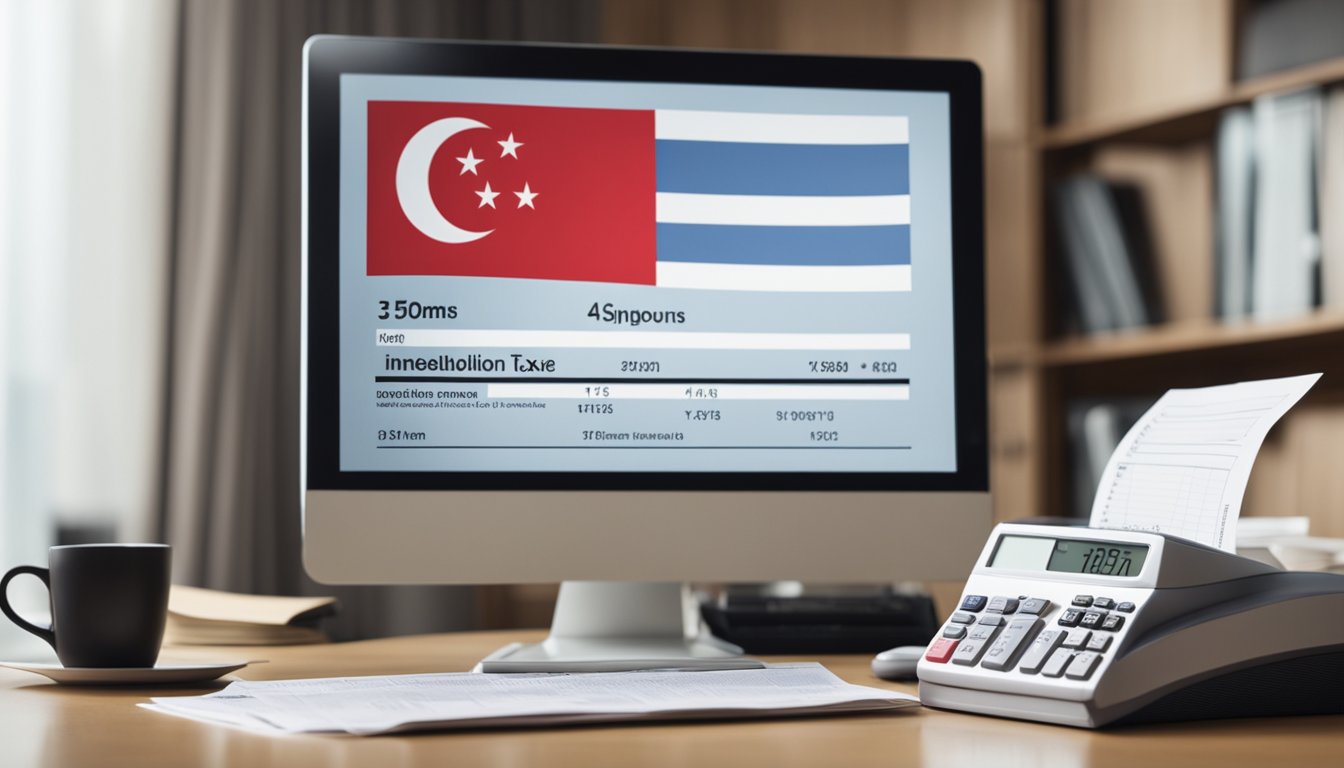
If you are working in Singapore, you may need to pay personal income tax. In this section, we will discuss the eligibility criteria and tax residency status in Singapore.
Determining Tax Residency Status
Before you start paying taxes in Singapore, you need to determine your tax residency status. Your tax residency status will determine the amount of tax you need to pay. There are three types of tax residency status in Singapore:
- Tax resident
- Non-tax resident
- Not ordinarily resident
If you are a Singapore citizen or permanent resident, you are considered a tax resident. If you are a foreigner or non-resident, you need to determine your tax residency status by using the following criteria:
- The number of days you have spent in Singapore in the previous year
- Your employment status
- Your family ties in Singapore
You will be considered a tax resident if you have stayed in Singapore for 183 days or more in the previous year. If you have stayed in Singapore for less than 183 days in the previous year, you will be considered a non-tax resident.
Tax Implications for Foreigners and Non-Residents
If you are a foreigner or non-resident, you will be taxed only on the income earned in Singapore. The tax rate for non-resident individuals is 15% or the resident rate, whichever is higher. However, if you are a foreigner and you have been employed in Singapore for more than 60 days in a year, your employer is required to withhold taxes from your salary.
On the other hand, if you are a resident individual, you will be taxed on all income earned in Singapore as well as overseas income that is remitted to Singapore. The tax rates for resident individuals are progressive, ranging from 0% to 22%. As a tax resident, you can also enjoy various tax reliefs and deductions.
In conclusion, it is important to determine your tax residency status in Singapore to avoid any tax-related issues. If you are a foreigner or non-resident, you need to be aware of the tax implications and rates before you start working in Singapore.
Taxable Income Components
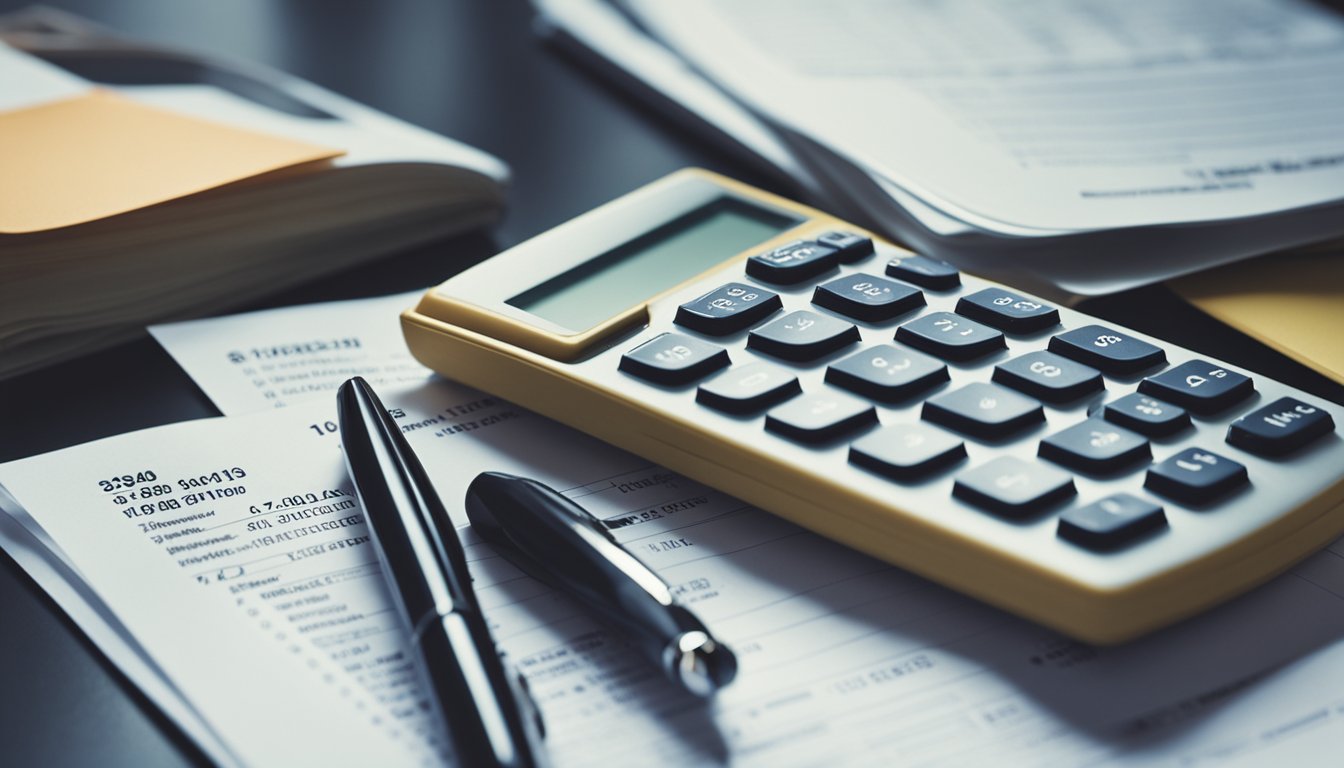
When it comes to Personal Income Tax in Singapore, it is important to understand what constitutes taxable income. Here are the main components of taxable income in Singapore:
Employment Income and Benefits
Your employment income is the most common type of taxable income in Singapore. This includes your salary, bonuses, allowances, and other benefits such as housing, car, and education allowances.
It is important to note that even if you receive your income from a foreign source, it may still be taxable in Singapore if you are a tax resident.
Investment and Rental Income
If you earn any income from investments such as dividends, interests, or rental income, it is considered taxable income in Singapore.
For rental income, you can deduct allowable expenses such as property tax, maintenance fees, and mortgage interest from your rental income before calculating your taxable income.
Other Income Types
Other types of income that may be taxable in Singapore include remuneration, commission, director’s fee, pension, self-employment income, and royalty.
It is important to keep track of all your income sources to ensure that you accurately report your taxable income to the Inland Revenue Authority of Singapore (IRAS).
Remember that failing to report your taxable income accurately can result in penalties and fines. So, make sure to keep all your income records and report your income on time.
Overall, understanding what constitutes taxable income in Singapore is essential for anyone who earns an income in the country. By knowing what is taxable, you can ensure that you are complying with Singapore’s tax laws and avoid any unnecessary penalties or fines.
Deductions and Reliefs

As a taxpayer in Singapore, you want to make sure that you are taking advantage of all the available deductions and reliefs to reduce your tax bill. Here’s what you need to know:
Understanding Deductions and Claims
Deductions are expenses that you can claim to reduce your taxable income. Some common deductions include course fees, donations, and trade union fees. You can claim these deductions when you file your tax return.
Claims, on the other hand, are expenses that you can claim to reduce your tax bill. Some common claims include the parenthood tax rebate, earned income relief, and personal reliefs. You can claim these when you file your tax return as well.
Available Tax Reliefs and Rebates
There are several tax reliefs and rebates available to taxpayers in Singapore. Some of the most popular ones include:
- Parenthood Tax Rebate: If you have children, you can claim this rebate to reduce your tax bill.
- Earned Income Relief: This relief is available to all taxpayers and can help to reduce your tax bill.
- Course Fees Relief: If you or your spouse have paid for any course fees, you can claim this relief to reduce your tax bill.
- Supplementary Retirement Scheme (SRS): If you have an SRS account, you can claim tax relief on the contributions you make to the account.
Special Schemes and Reliefs
There are also special schemes and reliefs available to certain groups of taxpayers. For example, if you have a qualifying child, you can claim qualifying child relief. If you are self-employed, you can claim the self-employed person relief. There is also a personal income tax relief cap, which limits the total amount of relief you can claim.
In conclusion, by taking advantage of the available deductions and reliefs, you can significantly reduce your tax bill in Singapore. Make sure to keep track of your expenses and claims throughout the year, so you can file your tax return accurately and claim all the deductions and reliefs you are entitled to.
Filing Your Income Tax

Filing your income tax in Singapore is a straightforward process. There are two ways to file your income tax return: e-filing and paper filing.
E-Filing and Paper Filing Procedures
E-filing is the most convenient and popular way to file your income tax return. You can file your income tax return online using your SingPass or IRAS PIN at the myTax Portal. You can also use the No-Filing Service (NFS) if you meet the criteria.
If you prefer to file your income tax return on paper, you can download the form from the IRAS website. You can also request for a hardcopy of the form to be mailed to you by calling the IRAS hotline at 1800-356-8300.
Deadlines and Submission
The deadline for filing your income tax return is usually on 15 April of the following year. However, if you choose to file your income tax return on paper, the deadline is usually on 18 April of the following year.
After filing your income tax return, you will receive an Acknowledgement Page on the screen. You should keep a copy of this page for your records.
Auto-Inclusion Scheme (AIS) for Employers
If you are an employer and you participate in the Auto-Inclusion Scheme (AIS), you do not need to submit a Form IR8A for your employees. The AIS is a scheme that allows employers to submit their employees’ income information directly to IRAS.
To participate in the AIS, you must obtain a Declaration of Participation (DOP) from IRAS. Once you have obtained the DOP, you can submit your employees’ income information through the AIS.
In summary, filing your income tax return in Singapore is a simple process. You can choose to e-file or paper file your income tax return, and the deadline for filing is usually on 15 April of the following year. If you are an employer, you can participate in the AIS to submit your employees’ income information directly to IRAS.
Payment and Penalties

Paying your personal income tax in Singapore is easy and convenient. You can pay through various modes of payment, including GIRO, internet banking, AXS stations, and SAM kiosks. Calculating your tax payable is also simple and straightforward. You can use the tax calculator on the IRAS website to estimate your tax payable.
Calculating Tax Payable
Your tax payable is calculated based on your chargeable income, which is your assessable income minus deductions and reliefs. The current personal income tax rates for resident taxpayers in Singapore are progressive, ranging from 0% to 22%. The tax rates for non-resident taxpayers are fixed at 15% or the resident rates, whichever is higher.
Modes of Payment
You can pay your personal income tax in Singapore through various modes of payment. The most convenient and hassle-free way is to set up a GIRO account with IRAS. With GIRO, your tax payable will be automatically deducted from your bank account on the due date. You can also pay through internet banking, AXS stations, and SAM kiosks.
Dealing with Penalties and Objections
If you fail to pay your personal income tax on time, you will be charged a late payment penalty of 5% of the tax payable. You can also be charged a penalty for non-filing or late filing of your tax return. If you receive a direct Notice of Assessment (NOA) from IRAS, you must pay the estimated tax within one month from the date of the NOA, even if you intend to object to the assessment or are awaiting the outcome of your objection.
If you are unable to pay your tax payable in full, you can apply for a payment plan with IRAS. This will allow you to pay your tax payable in instalments over a period of time. However, you will still be charged a late payment penalty of 1% per month on the outstanding tax payable.
In case you disagree with your tax assessment, you can object to it by submitting an objection within 30 days from the date of the NOA. You must provide supporting documents and reasons for your objection. IRAS will review your objection and notify you of the outcome. If your objection is successful, IRAS will issue a revised NOA. If your objection is not successful, you can appeal to the Income Tax Board of Review.
Special Considerations
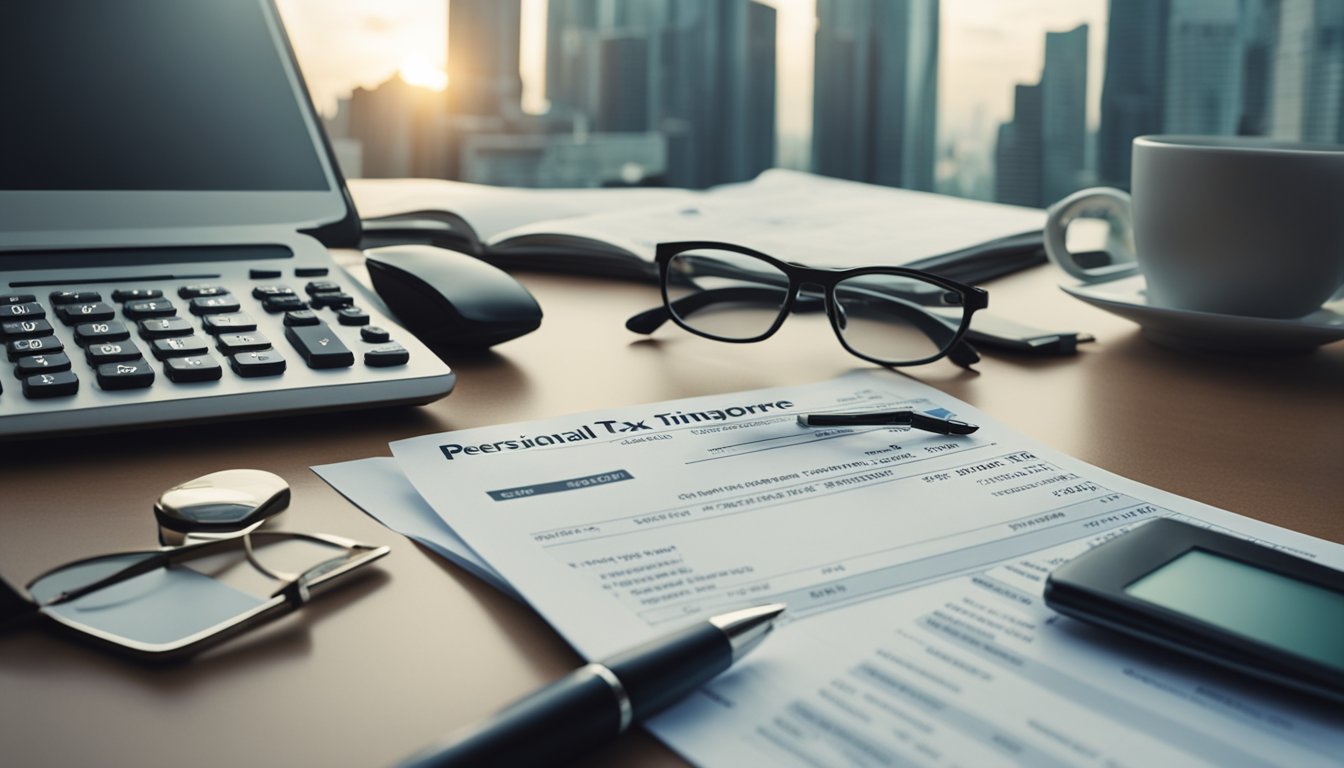
Tax for Self-Employed and Gig Workers
If you are a self-employed person or a gig worker in Singapore, you are required to file your personal income tax. You will need to report your income from all sources, including your main job and any side hustles you have.
As a self-employed person or gig worker, you can claim tax deductions for expenses related to your work. These expenses can include rental of equipment, office supplies, and even a portion of your home utility bills if you use your home as a workspace. Keep track of all your expenses and make sure to declare them when you file your taxes.
Understanding Withholding Tax
If you are a non-resident director of a Singapore company, you may be subject to withholding tax on your director’s fee. Withholding tax is a tax that is deducted at the source of income. In this case, the company will deduct the tax from your director’s fee and pay it to the Inland Revenue Authority of Singapore (IRAS) on your behalf.
If you are a non-resident individual providing services in Singapore, you may also be subject to withholding tax. The withholding tax rate varies depending on the nature of the services you provide and your residency status. Make sure to check with IRAS to determine if you are subject to withholding tax and the applicable tax rate.
Overall, it is important to understand the tax implications of your work situation in Singapore. Keep track of your income and expenses, and make sure to file your taxes on time to avoid penalties.
Support and Resources
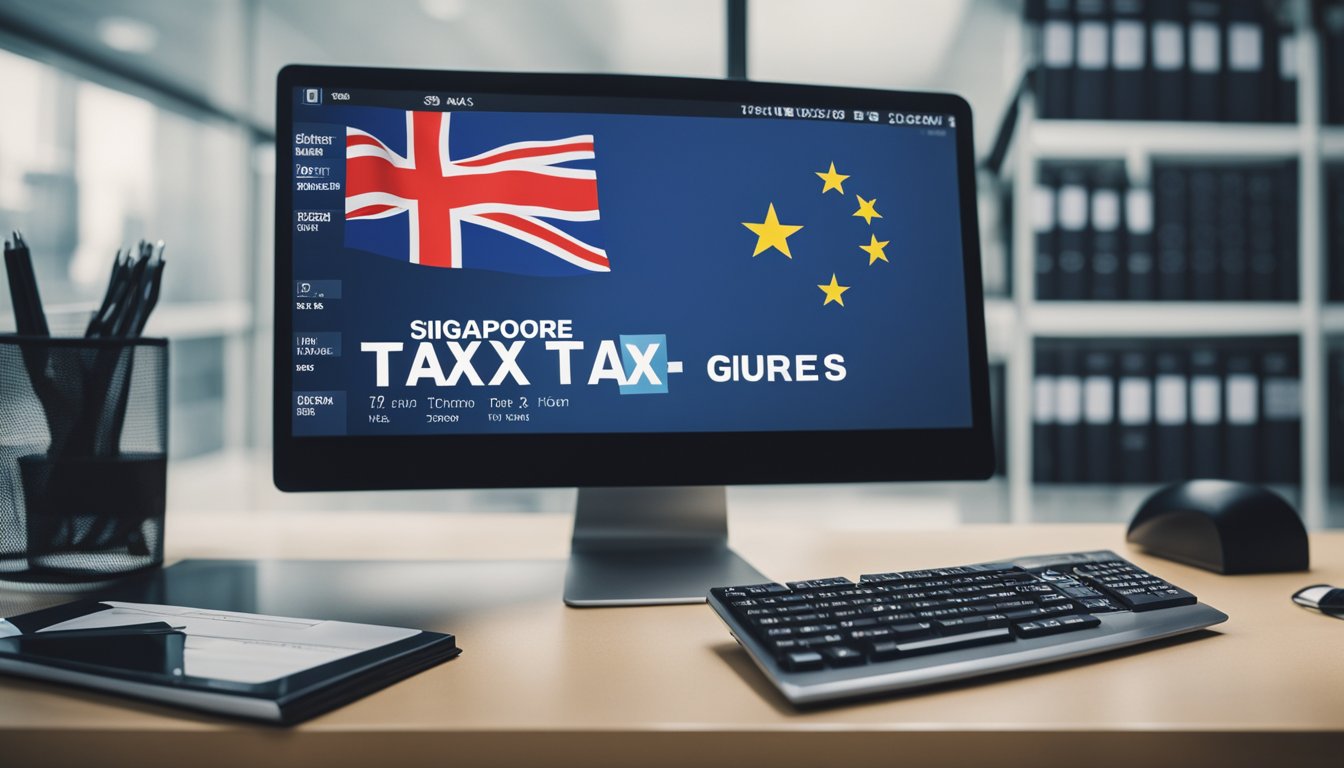
If you need assistance with filing your personal income tax in Singapore, there are various resources available to you. Here are some of the most useful ones:
Inland Revenue Authority of Singapore (IRAS) Assistance
The Inland Revenue Authority of Singapore (IRAS) is the government agency responsible for administering the tax system in Singapore. They offer a range of services to help taxpayers with their personal income tax, including:
- Taxpayer Service Centre: You can visit one of the Taxpayer Service Centres located across Singapore to get help with your tax-related enquiries. You can also make an appointment for a one-to-one consultation with an IRAS officer.
- E-Filing Assistance: If you need help with e-Filing your tax return, you can call the IRAS e-Filing hotline or attend one of the e-Filing workshops conducted by IRAS.
- Self-Help Tools: IRAS provides various self-help tools on their website, including a tax calculator, to help you calculate your tax liability and plan your finances accordingly.
Additional Tools and Calculators
In addition to the tools provided by IRAS, there are several other online resources that can help you with your personal income tax in Singapore. Here are some of the most useful ones:
- Ministry of Manpower (MOM): If you are an expat working in Singapore, you may need to apply for a work permit or employment pass. The MOM website provides information on the different types of work passes available, as well as the eligibility criteria and application process.
- Taxation.sg: This website provides a wealth of information on taxation in Singapore, including guides on personal income tax, corporate tax, and GST. They also offer a tax calculator that allows you to estimate your tax liability based on your income and other factors.
- MoneySense: MoneySense is a national financial education programme in Singapore that provides information and resources on personal finance. They offer a range of tools and calculators to help you manage your money, including a budget planner and a retirement calculator.
Overall, there are plenty of resources available to help you with your personal income tax in Singapore. Whether you need help with e-Filing, advice on tax planning, or information on work passes, there are plenty of tools and services available to make the process as smooth as possible.
Frequently Asked Questions
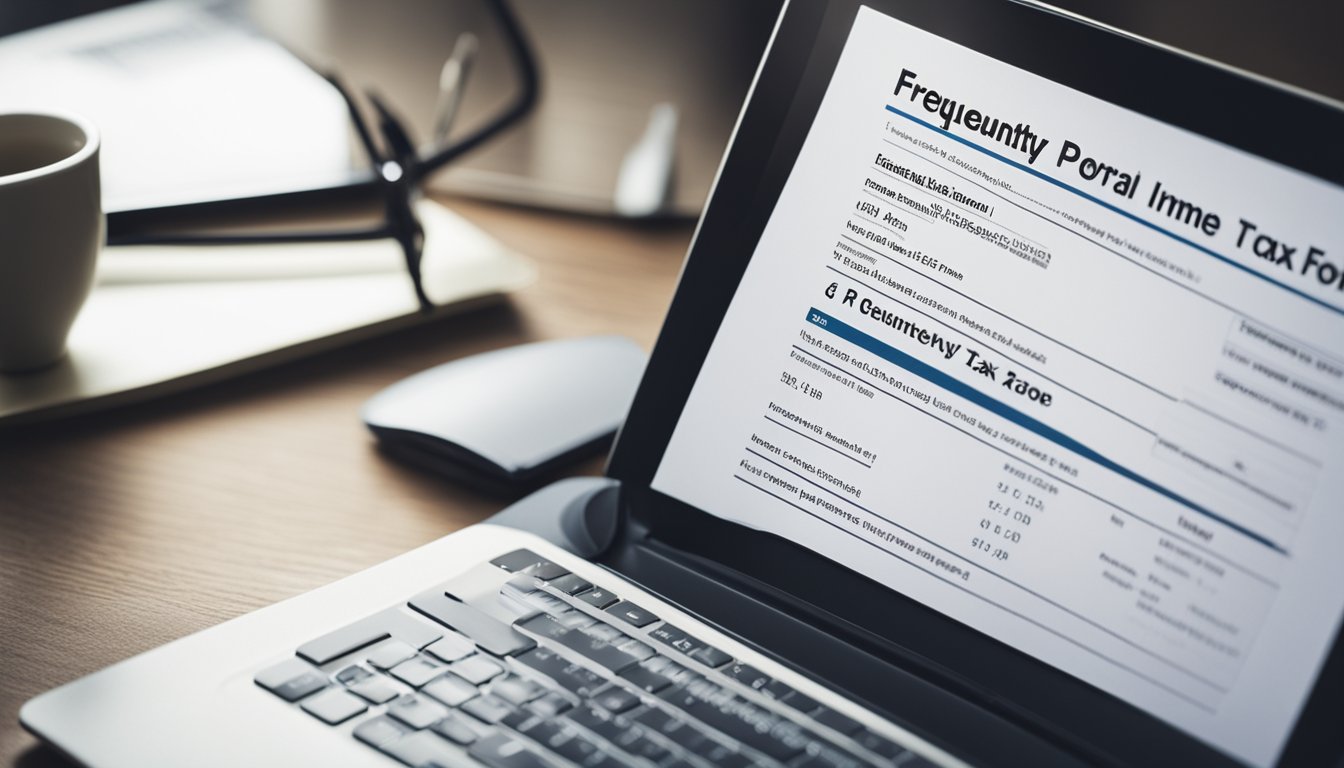
What are the current personal income tax rates for residents in Singapore?
If you are a resident in Singapore, your personal income tax rates are progressive, which means that the higher your income, the more tax you will need to pay. The current highest personal income tax rate is 22%. However, starting from Year of Assessment 2024, the top marginal personal income tax rate will be increased to achieve greater progressivity. You can find more information about the current personal income tax rates on the IRAS website.
How can one calculate their income tax liability with the latest Singapore Income Tax Calculator?
To calculate your income tax liability, you can use the latest Singapore Income Tax Calculator available on the IRAS website. The calculator takes into account your income, deductions, and reliefs to provide an estimate of your tax liability. However, it is important to note that the calculator is only a guide and should not be used as a substitute for professional advice.
When is the deadline for submitting personal income tax returns in Singapore?
The deadline for submitting personal income tax returns in Singapore is typically on 15 April of the following year. However, the deadline may differ depending on whether you are submitting your tax return online or by paper. You can find more information about the deadline for submitting personal income tax returns on the IRAS website.
What are some effective strategies to reduce one’s personal income tax in Singapore?
There are several effective strategies to reduce your personal income tax in Singapore. For example, you can make voluntary contributions to your Central Provident Fund (CPF), which can be used to claim tax relief. You can also claim tax relief for expenses such as charitable donations, course fees, and insurance premiums. Additionally, you may consider investing in tax-efficient financial products such as the Supplementary Retirement Scheme (SRS) or the Singapore Savings Bond (SSB). You can find more information about reducing your personal income tax on the IRAS website.
Are there any specific tax considerations for expatriates working in Singapore?
Yes, there are specific tax considerations for expatriates working in Singapore. If you are an expatriate, you may be eligible for tax exemptions or concessions under certain conditions. For example, you may be eligible for the Not Ordinarily Resident (NOR) Scheme, which provides tax exemptions for your income earned outside of Singapore. You can find more information about tax considerations for expatriates on the IRAS website.
How do I go about making a personal income tax payment to IRAS?
You can make a personal income tax payment to IRAS through various payment modes such as GIRO, Internet Banking, AXS Stations, SAM Kiosks, and NETS. You can find more information about the payment modes and how to make a payment on the IRAS website.

